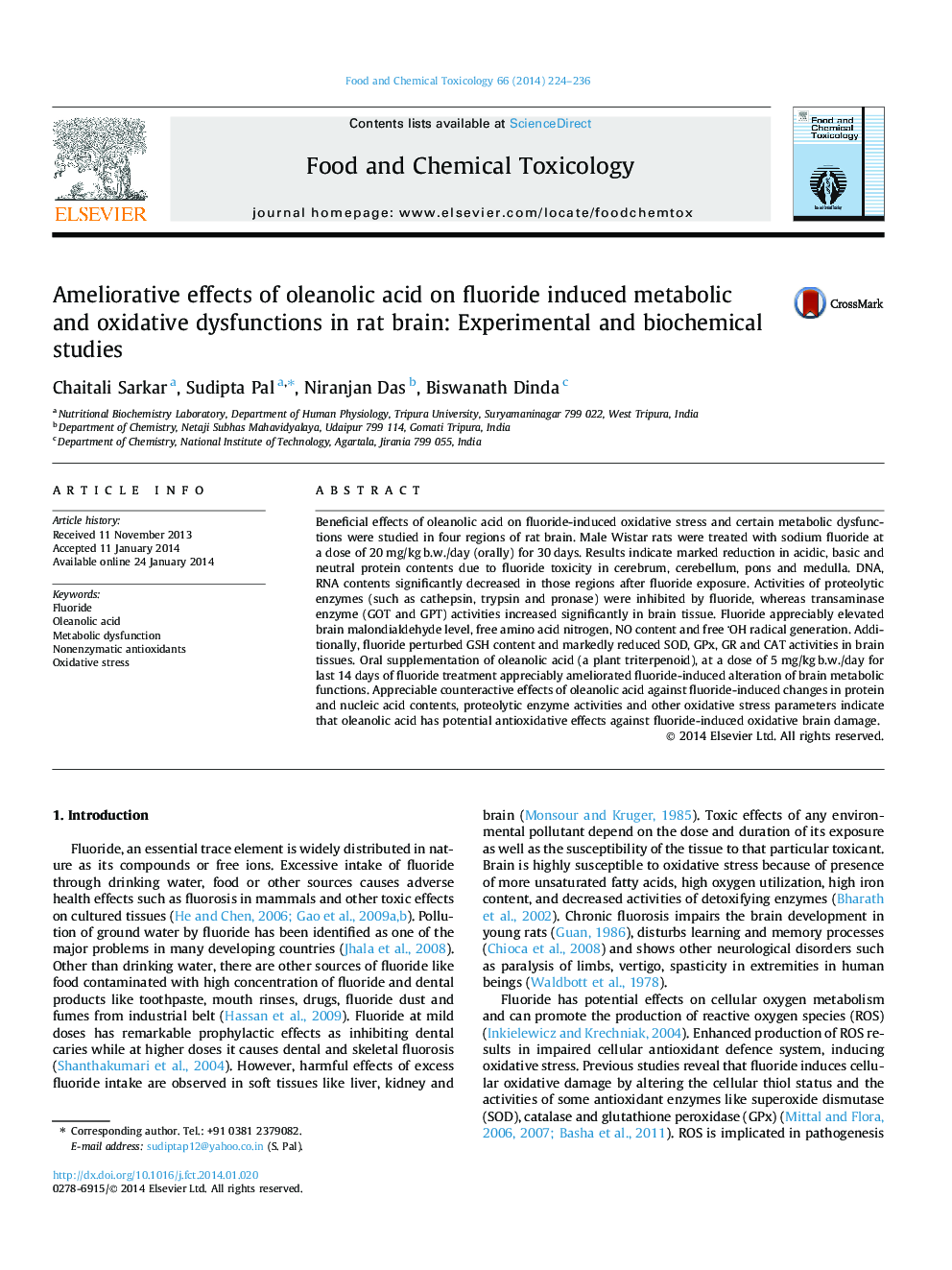| Article ID | Journal | Published Year | Pages | File Type |
|---|---|---|---|---|
| 5850754 | Food and Chemical Toxicology | 2014 | 13 Pages |
â¢Fluoride, a neurotoxic element impairs the brain function via oxidative stress.â¢Fluoride can alter the metabolic status of mammalian brain.â¢Oleanolic acid, a pentacyclic triterpenoid that exist widely in food, medicinal herbs and other plants.â¢Oleanolic acid may provide better ameliorative effects against fluoride induced brain toxicity.
Beneficial effects of oleanolic acid on fluoride-induced oxidative stress and certain metabolic dysfunctions were studied in four regions of rat brain. Male Wistar rats were treated with sodium fluoride at a dose of 20 mg/kg b.w./day (orally) for 30 days. Results indicate marked reduction in acidic, basic and neutral protein contents due to fluoride toxicity in cerebrum, cerebellum, pons and medulla. DNA, RNA contents significantly decreased in those regions after fluoride exposure. Activities of proteolytic enzymes (such as cathepsin, trypsin and pronase) were inhibited by fluoride, whereas transaminase enzyme (GOT and GPT) activities increased significantly in brain tissue. Fluoride appreciably elevated brain malondialdehyde level, free amino acid nitrogen, NO content and free OH radical generation. Additionally, fluoride perturbed GSH content and markedly reduced SOD, GPx, GR and CAT activities in brain tissues. Oral supplementation of oleanolic acid (a plant triterpenoid), at a dose of 5 mg/kg b.w./day for last 14 days of fluoride treatment appreciably ameliorated fluoride-induced alteration of brain metabolic functions. Appreciable counteractive effects of oleanolic acid against fluoride-induced changes in protein and nucleic acid contents, proteolytic enzyme activities and other oxidative stress parameters indicate that oleanolic acid has potential antioxidative effects against fluoride-induced oxidative brain damage.
Graphical abstractDownload full-size image
